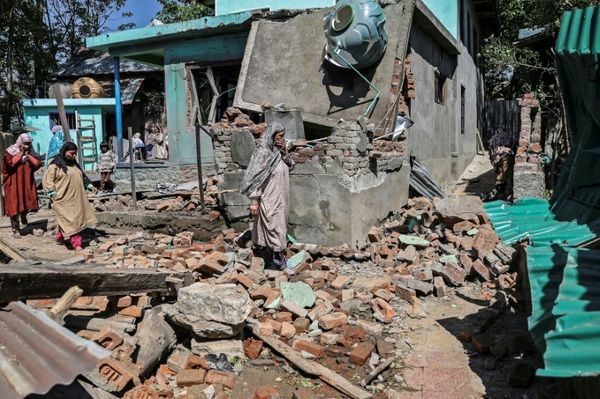
Crypto-wibble and non-fungible nonsense
An argument for cryptocurrencies, the blockchain and non-fungible tokens is that they may one day democratise finance, and place wealth in the hands of those who previously had little access to resources. An alternative argument is that it’s all a Ponzi scheme where all but a select few will lose their shirt. Recent crashes in the crypto market suggest the latter is the more likely. Still, there’s money to be made in the interim, and football’s unrelenting lust for get-rich-quick schemes makes it an ideal breeding ground for crypto-wibble. It’s become ubiquitous. VAR in Serie A is sponsored by a crypto exchange, Manchester City signed up and then hurriedly binned a crypto partner that had no digital footprint, Paul Pogba flogged “dragon eggs” and then John Terry got in a bit of lumber for shilling NFTs that included official logos he didn’t have permission to use.
Whenever a footballer signs up for social media, the immediate suspicion now is that they will soon enough start flogging an NFT. And so it proved with Son Heung-min just the other week. Meanwhile, clubs have freely got into bed with crypto companies, some of which purport to offer buyers the chance to “be more than a fan”, to use the strapline of Socios, which allows fans to buy “virtual tokens”, and has a linkup with Lionel Messi. One day, when the full glory and scope of the metaverse has been realised, all this may make sense. For the moment, crypto appears football’s latest trousering of cash and hanging of the consequences.
Super League’s continuing legacy
This time last year, football was counting the fallout of the failed launch of the European Super League. Vengeance was in the air. The fans, the smaller clubs, even Boris Johnson’s UK government wanted to make those who tried to steal the game pay for their betrayal. And yet, Barcelona, Real Madrid and Juventus, the three clubs who unrepentantly tried to keep the show on the road, have faced little censure from Uefa, legal proceedings eventually declared null and void. Uefa has instead made the Champions League a safer environment for the super club, its eight-game, Swiss-system group-stage will decide little but more TV revenue. And its redrawing probably means five Premier League clubs will get to join the pre-Christmas, non-competitive jamboree as a means to plump up the numbers.
Meanwhile, as plans for an independent football regulator in the UK gathered pace, to curb excesses and smooth the trickle-down, the Premier League coughed out this piece of self-interest classicism: “The Premier League recognises and accepts the case for reform and for a strengthened regulatory system across football … but we will continue to maintain that it is not necessary for there to be a statutory-backed regulator.”

Swinging the Covid lead
The Covid-19 pandemic was near-disastrous for football as well as a genuine global tragedy. That still didn’t prevent clubs squabbling in self-interest when there were – or were not – outbreaks of coronavirus within squads. It barely helped that the football authorities’ rulings on such matters were opaque, leaving a system that could be readily played. Arsenal withdrew from the north London derby in January, with only one confirmed Covid case in the camp. Injuries, Afcon and Granit Xhaka’s suspension had reduced Mikel Arteta’s squad to the bare bones. The game was eventually rescheduled for May, when Tottenham won 3-0, Antonio Conte dryly noting: “Arsenal were good to postpone a game in an incredible way with Covid … I didn’t forget this.”
Similarly, just as Newcastle prepared to enter the January transfer market, they had games with Southampton and Everton called off. By the time those matches were played, they were flush with £100m of new signings and sauntering into mid-table. The rules were eventually tightened but sharp practice had already left a bad taste.
Anti-social media
Complaining about the behaviour of football fans on social media has become a perennial, largely hopeless cause, but this season saw new frontiers of rage and shame opened up. Newcastle’s purchase by a majority Saudi Arabian ownership saw yet another club’s fans mobilised, ready and willing to defend the activities of ultra-rich people whose cash pays for supporters to live out their football dreams.
Even when those activities include the murder of a journalist, involvement in a humanitarian disaster in Yemen and the execution of a record number of 81 people in a single day, a corner of social media was willing to defend Riyadh. Similarly, certain Chelsea fans claimed victimisation of Roman Abramovich, dismissing any evidence of the relationship with Vladimir Putin that led to him being sanctioned after Russia invaded Ukraine. Not that Newcastle and Chelsea fans are alone. Every club has at least one keyboard warrior willing to abandon decency and credibility because of football loyalties.
It’s a hell of a drug
It turns out that the Euro 2020’s final’s coked-up, pissed-up, flare-up-the-bum bonanza of stupidity was not the last straw but instead the prelude to a season pockmarked by fans acting like brainless idiots. Affix here the requisite caveat that it is some, by no means all, who believe that Danny Dyer in the Football Factory is a design for life. In partial mitigation, fans had been largely locked out of stadia for almost 18 months, so a release of pressure was inevitable. But the sight of long queues for the cubicles in the gents, of lads hoofing fat lines off any available flat surface are now common, entirely anti-social at what are family events.
Cocaine and booze makes for a heady cocktail of foolishness that surely is a factor in some recent insurrectional scenes like those at the City Ground last Tuesday, Northampton last Wednesday and Vale Park and Goodison last Thursday. Flares being launched and clubs’ inability/refusal to stop pitch invasions don’t help, either.







